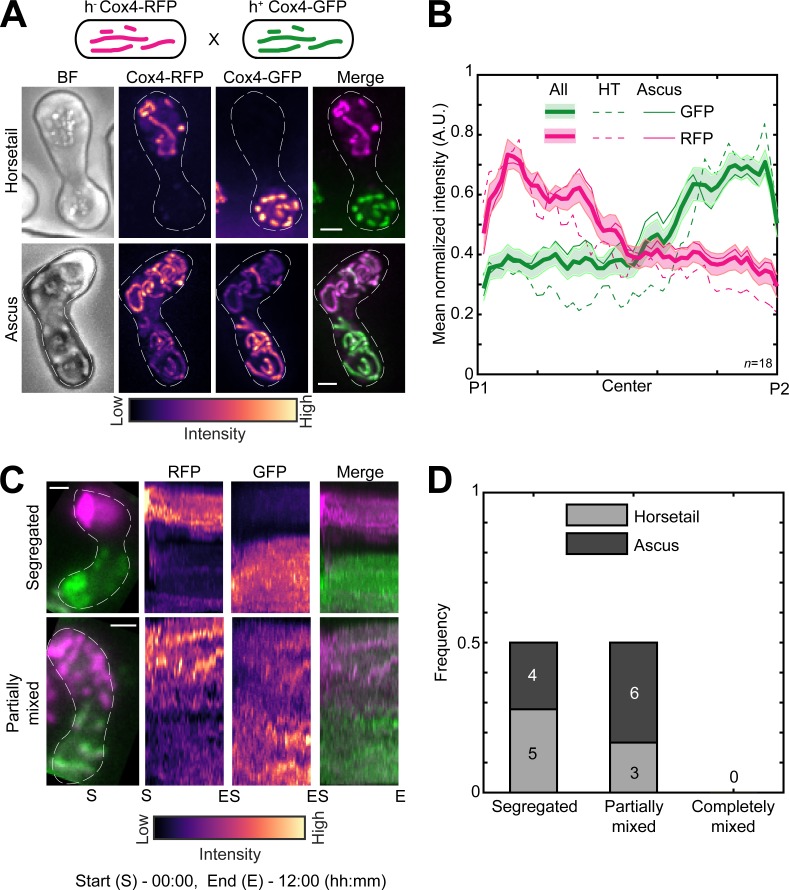Figure 2.
Parental mitochondria remain segregated upon conjugation. (A) Schematic of the cross performed (top, strain PT1650xPT1651; see Table S1), maximum-intensity–projected images of bright-field channel (BF; first from left), images of mitochondria labeled with Cox4-RFP (second from left) and Cox4-GFP (third from left) represented in the intensity map to the bottom of the images, and their merge (right) during the early stage (horsetail, top) and late stage (ascus, bottom) of meiosis. (B) Plot of mean normalized intensities of RFP (magenta lines) and GFP (green lines) in the horsetail stage (HT; dashed lines, n = 8), ascus stage (Ascus; solid lines, n = 10), and the stages combined (All; thick solid lines) across the length of the cell from the cross indicated in A (n = 18). Shaded regions represent SEM. (C) Representative maximum-intensity–projected images (left) and kymographs of time-lapse movies of RFP channel (second from left), GFP channel (third from left), and their merge (right) of meiotic cells resulting from the cross indicated in A, exhibiting the segregated phenotype (top) and partially mixed phenotype (bottom). The intensity map of kymographs of the GFP and RFP channel is indicated to the bottom of the images. S denotes start of imaging at 00:00, and E denotes end of imaging at 12:00 (hours:minutes). (D) Stacked bar plot of frequency of segregated, partially mixed and completely mixed phenotypes observed in horsetail (light gray) and ascus (dark gray) stages from the data in B. In A and C, scale bars represent 2 µm and dashed lines represent cell outlines.

